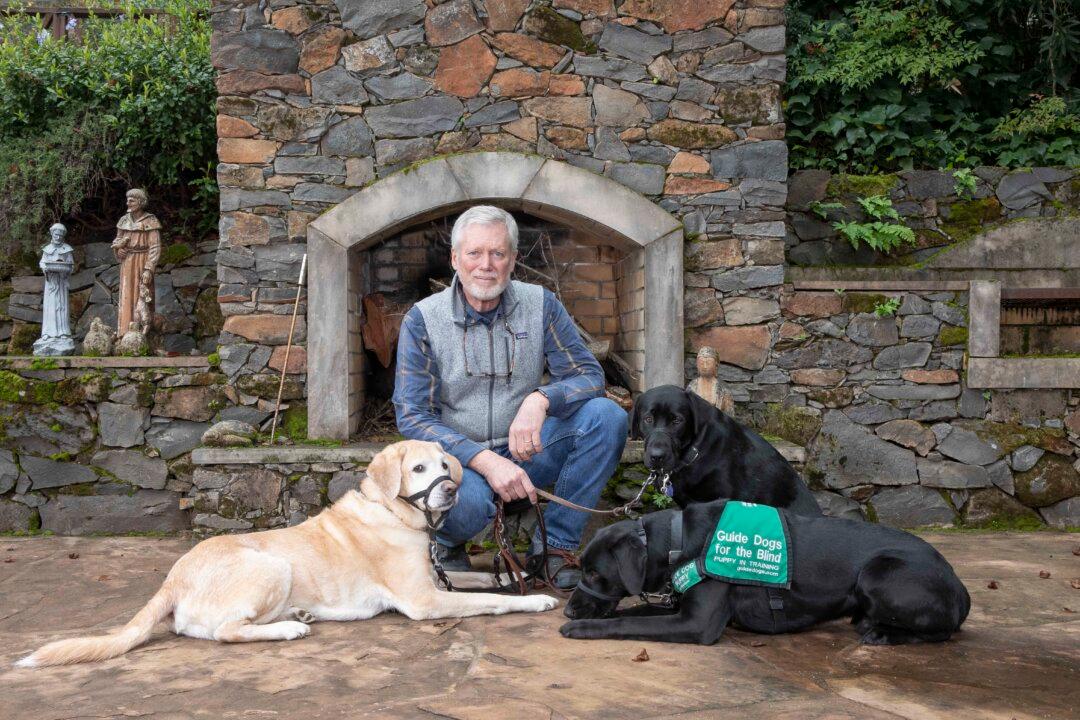When Jeff and Cindy Scharfen’s daughter Misa was 10 years old, she wanted a puppy. What could be more normal? But sometimes, even with puppies, “Man plans, God laughs,” as the Yiddish proverb states. Cindy’s parents had recently received a non-qualifying, “career changed” guide dog as a gift from a friend, and when Misa, her brother James, Jeff, and Cindy saw the dog, it seemed like a wonderful idea to get a puppy that they could raise as a guide dog for the blind.
So they did. It was Christmas in the year 2000, and the puppy’s name was Charleston.






